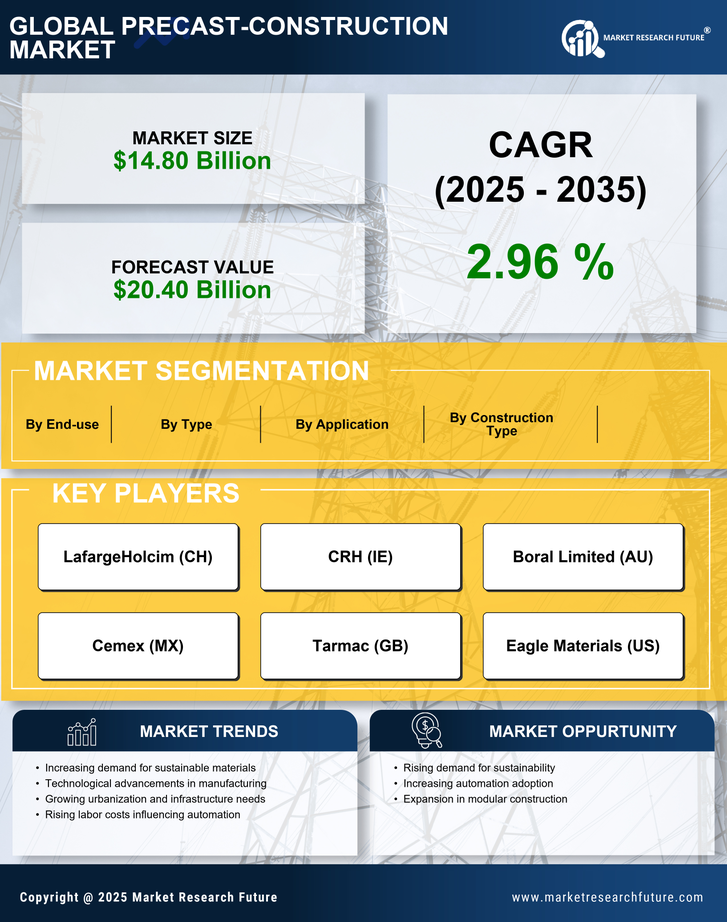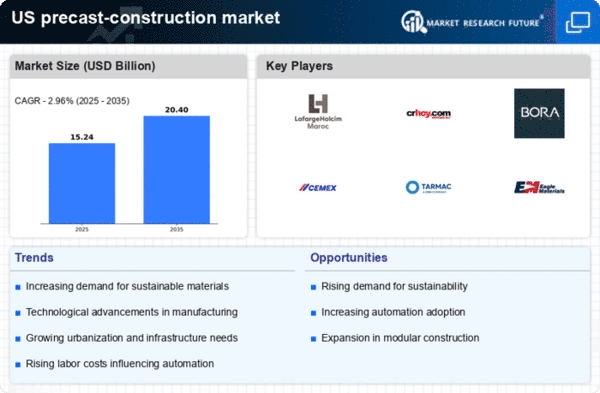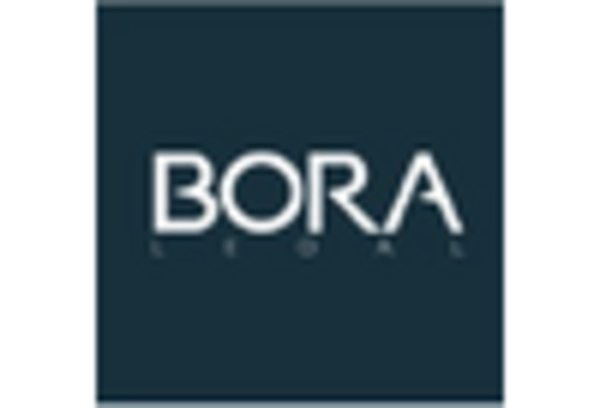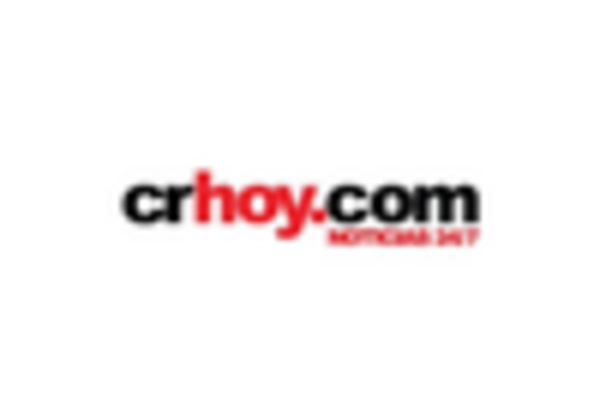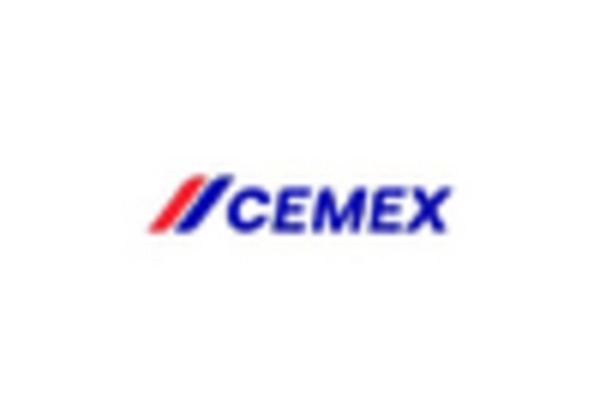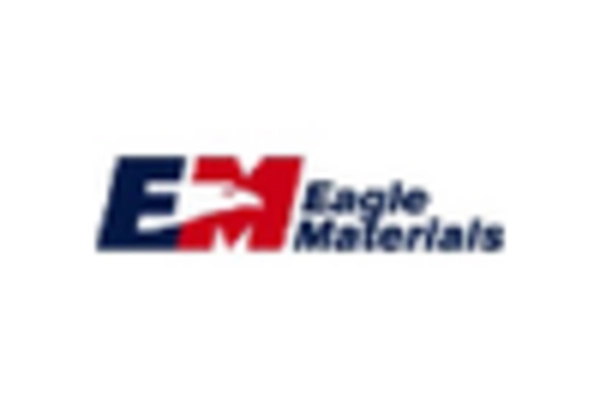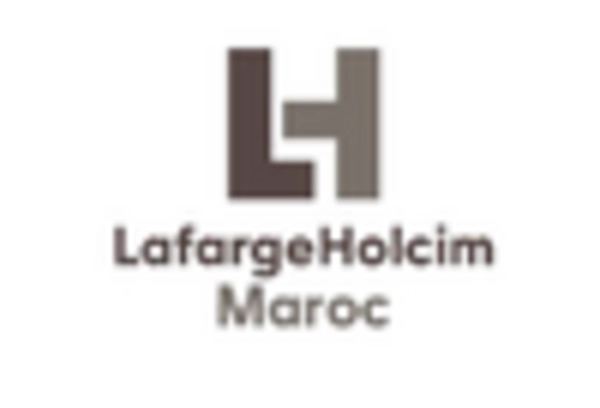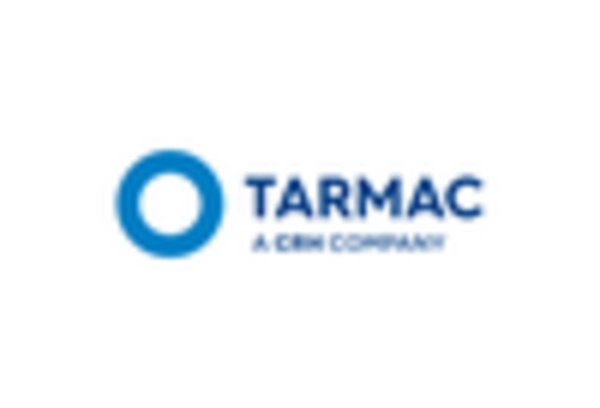Increased Focus on Safety Standards
The pre cast-construction market is witnessing an increased emphasis on safety standards and regulations. As construction sites become more complex, the need for safer building practices has gained prominence. Pre cast-construction methods inherently reduce on-site labor, minimizing the risk of accidents and injuries. In the US, regulatory bodies are implementing stricter safety guidelines, which could potentially favor the adoption of pre cast-construction techniques. This shift towards enhanced safety measures is likely to bolster the market, as companies seek to comply with regulations while ensuring worker safety. The pre cast-construction market is thus positioned to benefit from this trend, as it aligns with the industry's commitment to improving safety outcomes.
Rising Demand for Affordable Housing
The pre cast-construction market is experiencing a notable surge in demand for affordable housing solutions. As urban populations continue to grow, the need for cost-effective construction methods becomes increasingly critical. In the US, housing shortages have led to a significant increase in housing prices, prompting developers to seek innovative solutions. Pre cast-construction offers a faster and more economical approach, reducing labor costs and construction time. According to recent data, the pre cast-construction market is projected to grow at a CAGR of approximately 6.5% over the next five years, driven by this demand for affordable housing. This trend indicates a shift towards more efficient building practices, positioning the pre cast-construction market as a viable alternative for meeting housing needs in urban areas.
Government Infrastructure Investments
Government investments in infrastructure are playing a pivotal role in the growth of the pre cast-construction market. The US government has allocated substantial funding for infrastructure projects, including roads, bridges, and public buildings. This influx of capital is expected to enhance the demand for pre cast-construction methods, which offer durability and speed in project completion. Recent reports indicate that federal infrastructure spending is projected to reach $1 trillion by 2027, creating a favorable environment for the pre cast-construction market. The ability to deliver projects efficiently and within budget constraints makes pre cast-construction an attractive option for government contracts, thereby driving market growth.
Sustainability and Environmental Regulations
Sustainability concerns are increasingly influencing the pre cast-construction market. With growing awareness of environmental issues, regulatory frameworks are evolving to promote sustainable building practices. The US has seen a rise in environmental regulations that encourage the use of eco-friendly materials and construction methods. Pre cast-construction, which often utilizes recycled materials and reduces waste, aligns well with these sustainability goals. As a result, companies in the pre cast-construction market are likely to adopt greener practices to comply with regulations and meet consumer demand for sustainable solutions. This trend not only enhances the market's appeal but also positions it favorably in a competitive landscape.
Technological Integration in Construction Processes
The integration of advanced technologies in construction processes is significantly impacting the pre cast-construction market. Innovations such as Building Information Modeling (BIM) and automation are streamlining design and manufacturing processes, leading to increased efficiency and precision. In the US, the adoption of these technologies is expected to enhance the quality and speed of pre cast-construction projects. As companies leverage technology to optimize their operations, the pre cast-construction market is likely to experience growth driven by improved project outcomes. This technological shift not only reduces costs but also enhances collaboration among stakeholders, making pre cast-construction an attractive option for modern construction needs.
